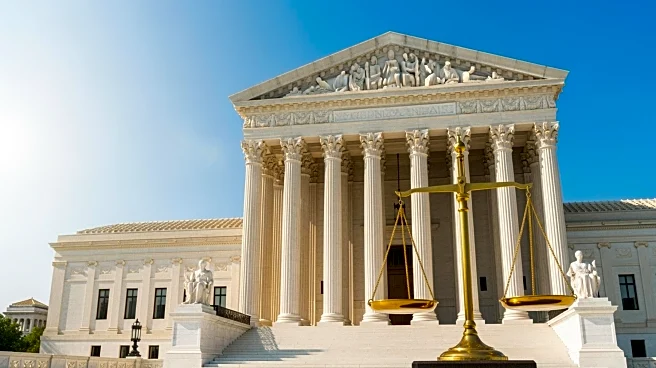What's Happening?
President Donald Trump has expressed his intention to attend the Supreme Court hearing on the legality of the tariffs he imposed under the International Emergency Economic Powers Act (IEEPA). The hearing is scheduled
for November 5, following the off-year elections. Trump has emphasized the significance of this case, describing it as one of the most important ever brought before the court. The case revolves around whether the president has the authority to impose tariffs without explicit congressional approval, as the Constitution assigns the power to raise revenue to Congress. The U.S. Court of Appeals for the Federal Circuit previously ruled against Trump, but the decision is on hold pending the Supreme Court's review.
Why It's Important?
The outcome of this case could have significant implications for the balance of power between the executive and legislative branches of the U.S. government. If the Supreme Court sides with Trump, it could set a precedent for expanded presidential authority over economic policy, particularly in imposing tariffs. This could impact U.S. trade relations and economic strategies, potentially affecting industries reliant on imports. Conversely, a ruling against Trump could reinforce congressional control over revenue-raising measures, maintaining the traditional separation of powers. The case also highlights the broader debate over the scope of presidential powers under emergency economic statutes like IEEPA.
What's Next?
The Supreme Court's decision will be closely watched by political leaders, businesses, and international trade partners. A ruling in favor of Trump could embolden future presidents to leverage IEEPA for broader economic actions, while a decision against him might prompt legislative efforts to clarify or limit presidential powers under the act. Stakeholders in industries affected by tariffs will be particularly attentive to the outcome, as it could influence future trade policies and economic conditions.










